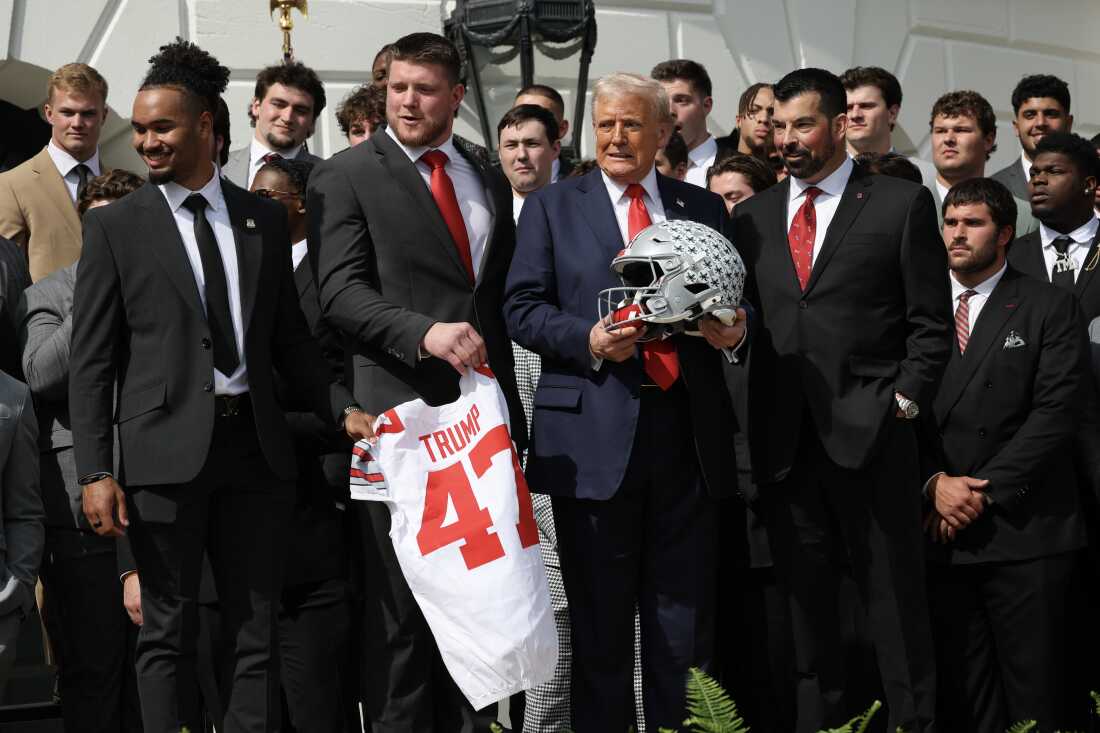
President Trump stands with Ohio State Head Coach Ryan Day (R) as he welcomed the 2025 College Football National Champions from Ohio State University to the White House during a ceremony on April 14, 2025 in Washington, DC. Trump's new executive order seeks to ban "pay-for-play" deals and requires schools to provide scholarships in women's and Olympic sports — and it dangles the threat of withholding federal funds to schools as an enforcement mechanism. Win McNamee/Getty Images hide caption
toggle caption
Win McNamee/Getty Images
WASHINGTON — President Trump has taken aim at college sports with a new executive order signed Thursday that seeks to empower federal agencies, including the U.S. Department of Education, which disburses funds to public universities, to help enforce new provisions on athletic scholarships and "pay-for-play" licensing deals for athletes.
The order directs the nation's largest athletic departments to maintain certain numbers of scholarships for women's and Olympic sports. And it seeks to rein in the lucrative name, image and likeness deals — known as NIL — that have dramatically transformed athlete compensation in recent years.
"The future of college sports is under unprecedented threat," the order says. "A national solution is urgently needed to prevent this situation from deteriorating beyond repair and to protect non-revenue sports, including many women's sports, that comprise the backbone of intercollegiate athletics, drive American superiority at the Olympics and other international competitions, and catalyze hundreds of thousands of student-athletes to fuel American success in myriad ways."
Whether the order's provisions will pass legal muster is an open question, legal experts told NPR. Still, it represents the president's increasing interest in sports issues and especially college athletics.
"This may not be a binding legal framework — but it's absolutely a signal: that the federal government, and now presidential politics, are increasingly willing to intervene in the future of college sports," said Noah Henderson, a professor of sports management at Loyola University Chicago.
Trump's order comes the month after the approval of the House settlement, a class action legal agreement that has opened the door for Division I college athletic departments to pay players directly, upending the long-standing NCAA tradition of amateurism.
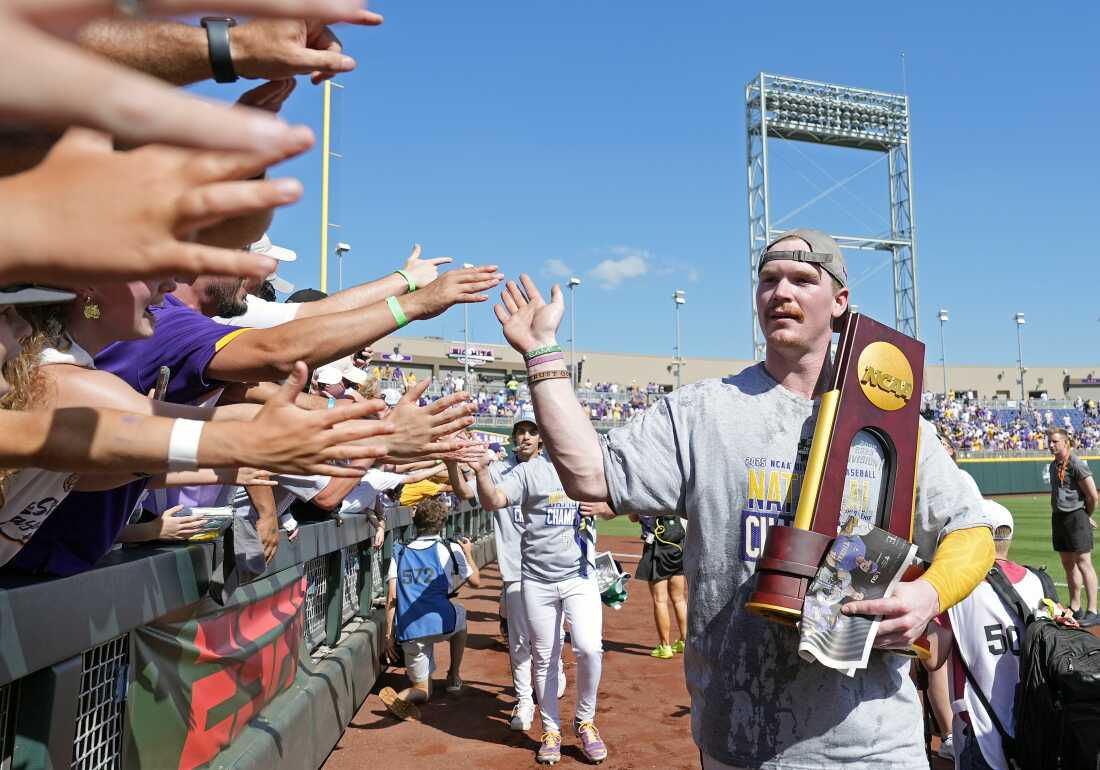
Jared Jones of the LSU Tigers celebrates with fans after defeating the Coastal Carolina Chanticleers to win the NCAA College World Series baseball finals last month in Omaha, Neb. Jay Biggerstaff/Getty Images hide caption
toggle caption
Jay Biggerstaff/Getty Images
That settlement, which allows schools to compensate athletes up to an initial cap of $20.5 million, has raised anxieties about the future of non-revenue sports, including most women's and Olympic sports, as schools divert resources to compensate athletes in order to stay competitive in the revenue-generating sports of football and basketball.
"Absent guardrails to stop the madness and ensure a reasonable, balanced use of resources across collegiate athletic programs that preserves their educational and developmental benefits, many college sports will soon cease to exist," the order reads.
Among the "guardrails" the order seeks to impose are requirements that the highest-earning college athletic departments provide more scholarship opportunities in non-revenue sports than they did in the 2024-2025 school year.
That provision would apply to around 30 of the nation's largest athletic departments, according to data from 2024.
In a hint of how its provisions might be enforced, the order directs the Department of Education — which the Trump administration is in the process of dismantling — to use the disbursement of federal funds, Title IX enforcement, and interstate commerce laws to influence schools. Most of the nation's largest athletic departments belong to public universities, such as the Ohio State University and the University of Texas.
Those are "pretty extreme actions," said Sam Ehrlich, a professor at Boise State University who tracks collegiate sports litigation. "Is this just a threat or something that is actually going to lead to something? Will the executive branch actually insert themselves into these situations to enforce this? And what will be the unintended consequences if it does get followed up on?" he added.
Pay-for-play deals for players' NIL rights are also a target of the Trump administration's order. The NCAA has allowed such deals since a 2021 Supreme Court decision, which have come to dominate the financial landscape of Division I college sports.
Athletes, especially football and basketball players, now earn thousands or even millions of dollars per year in NIL deals, some of which are connected to a marketing campaign but others are effectively compensation for playing.
NIL deals that are pay-for-play are "improper and should not be permitted by universities," the Trump order says, specifically carving out deals that carry a "fair market value" for a brand endorsement or other legitimate purpose.
College athletic officials have lobbied Washington for years to help rein in the wave of litigation that has reshaped college sports over issues of compensation and eligibility.
The executive order aligns with many of the priorities stated in recent years by the NCAA, the governing body of college athletics, whose long-standing policies around eligibility and compensation have been deeply eroded over the past decade by litigation.
"The Association appreciates the Trump Administration's focus on the life-changing opportunities college sports provides to millions of young people and we look forward to working with student-athletes, a bipartisan coalition in Congress and the Trump Administration to enhance college sports for years to come," NCAA president Charlie Baker said in a statement.
The NCAA has long lobbied for federal legislation to help protect it from litigation and will continue to do so, he added.
But Trump's signing of Thursday's order could be a risk to "deepen partisan divides in college sports rather than create the consensus needed for long-term reform," said Henderson — especially in the Senate, where the Republican majority falls seven votes shy of the 60 votes required to defeat a filibuster on new legislation.
The five "power conferences" in college sports were quick to applaud the executive order. In a joint statement from the Southeastern, Atlantic Coast, Big Ten, Big 12 and Pac-12 Conferences, they said: "We hope Congress sends federal legislation to President Trump's desk as soon as possible."
The order also directs numerous federal agencies to wade into the fray. The National Labor Relations Board is asked to issue rules and guidance "with respect to clarifying the status of collegiate athletes" to ensure they continue to not be legally considered employees for the purposes of labor law. Officials at the Justice Department and Federal Trade Commission are directed to prepare for involvement in future litigation over college sports.

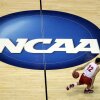



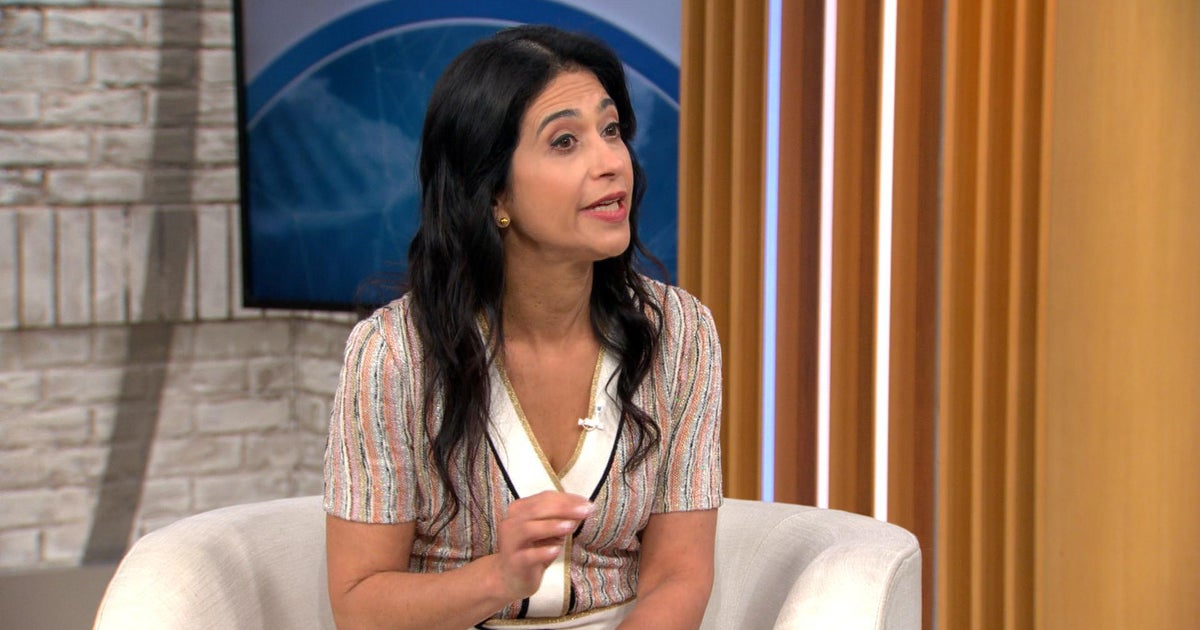

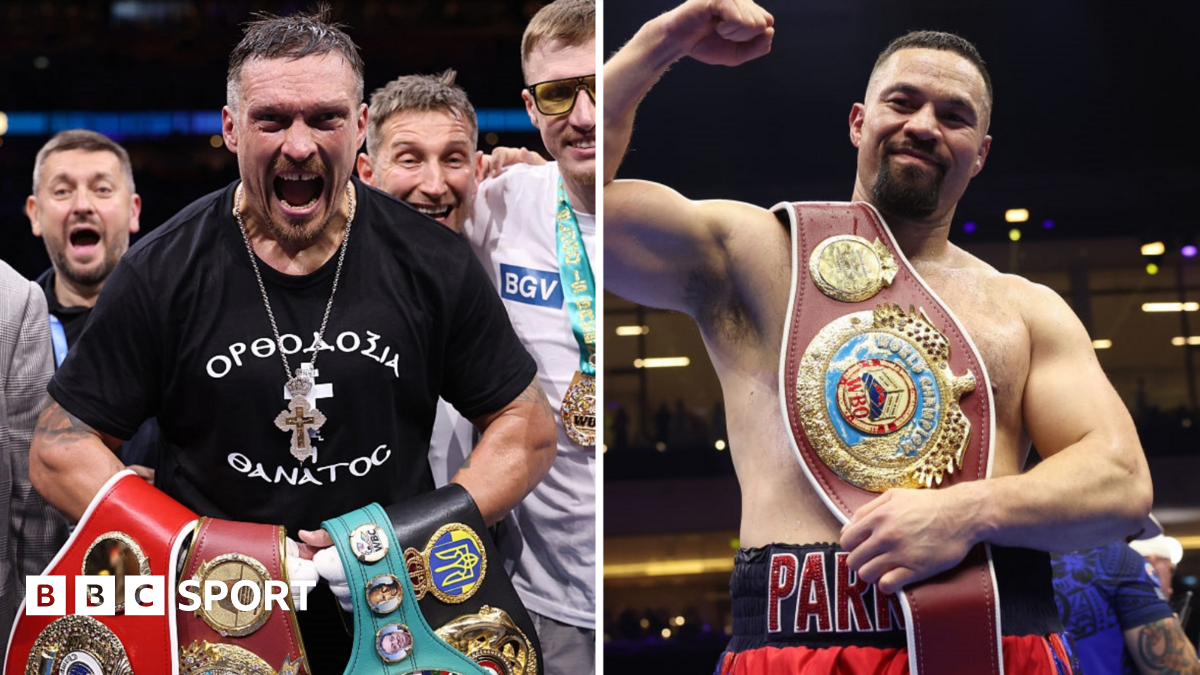


 English (US) ·
English (US) ·